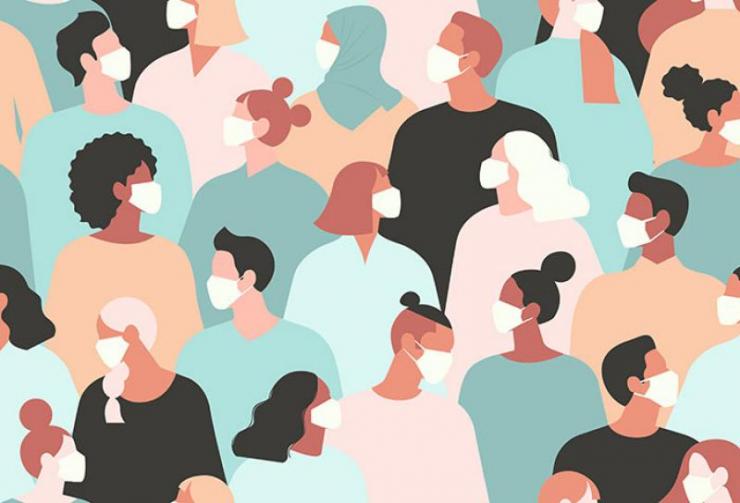
MPH Alums Are on the Front Lines of Coronavirus Battle
AHS E-News Spring 2020

By Vincent Lara-Cinisomo, Media Relations/Editorial Specialist, College of Applied Health Sciences
Graduates of the Master of Public Health degree program in the College of Applied Health Sciences are finding themselves on the front line in the battle against COVID-19. And thanks to their University of Illinois education, they are better-equipped to handle a pandemic for which few could have been prepared.
Ken Borkowski, a 2012 MPH graduate, is working for the Michigan Department of Health and Human Services, conducting contact tracing with known cases of COVID-19 within the Metro-Detroit area. He credits his ability to succeed in the job in part because of what he learned in the MPH program.
“Going back to the basics of epidemiology 101, we have to look at how this disease moves, collect all the information that's necessary to develop accurate models of how things are going to progress, and determine what we need to do to inform the public health work that we do here in Michigan,” he said.
Borkowski’s job involves calling people dealing with COVID-19—or their family members if the patient is too ill—and collecting information.
“Some of the key things that we're looking at now is the onset date of symptoms, whether they’ve been able to quarantine, and did they go to any sort of high-risk areas such as nursing homes, long-term-care facilities, childhood daycare centers, and so on,” he said.
Teresa Castaneda, a communicable disease investigator for the Champaign-Urbana Public Health District who graduated from the MPH program in 2019, also gives credit to her Illinois experience.
“The epidemiology knowledge and biostatistics prepared us for how a pandemic is going to come in waves, and how we can track cases,” she said. “There’s really no way to prepare for this, but just knowing the science and the epidemiology behind it really helps.”
Castaneda started at CUPHD as a case manager for HIV patients, working with a communicable diseases investigator for routine cases such as e-coli, salmonella, and hepatitis B and C. She has put her investigative skills to use in the coronavirus pandemic, which came as no surprise to CUPHD.
“I’ve been involved in these conversations since right around Christmas,” she said. “We’ve been having ‘When-it-comes-to-Champaign-County’ conversations, not ‘If-it-comes-to-Champaign-County’ conversations.”
Derrius Carter is another 2019 MPH graduate who works for CUPHD in contact tracing and as a public information officer. Part of his job is similar to what Castaneda is doing, but Carter also has a public-facing role.
“What we do is provide guidance—how to shop for groceries, how long people should stay at home,” he said. “We have to be mindful about how all the variables intersect, and create avenues in which we can educate people about COVID-19.”
Like Borkowski and Castaneda, Carter credits his MPH education for getting him as ready as he could be.
“We had classes that touched on emergency preparedness, but I don’t think anybody can prepare you for doing the work,” he said. “You can learn about the different mechanisms for responding, but it’s a little bit different when you’re actually in it.”
The Illinois graduates remain hopeful the crisis can end in the coming months, but are urging people to follow state and federal guidelines.
“Pandemics come in waves, and we see that historically,” Castaneda said. “When we get to the end of the downturn of this one, I don’t think that will be the end of COVID-19. But I do hope that we will return to some normalcy soon.”
Until that day comes, these MPH graduates and public health professionals offer the following advice: keep social distancing, keep washing your hands frequently, and follow the recommendations of local and state public health department officials. As Teresa Castaneda put it, “If you want good information, we always have the best stuff.”

